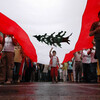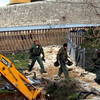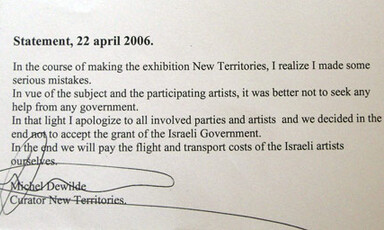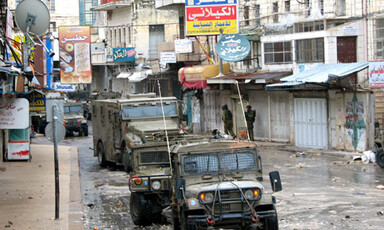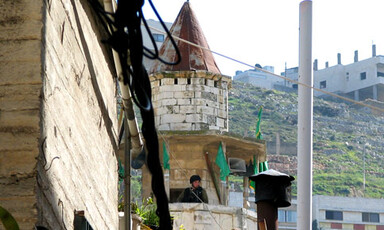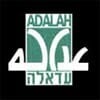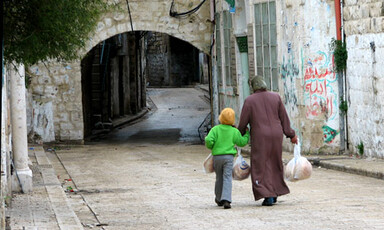
War and Irony in Hebron Hilltops
Hebron, Palestine 15 March 2007
The small Palestinian Tel Rumeida neighborhood of Hebron is home to some of the most violent ideological settlers in the West Bank, who have moved into local homes by force and parade the streets with guns, terrorizing local residents including children on their way to and from school. Unlike most settlers in the West Bank who move to the Occupied Territories because the Israeli government encourages them to do so with financial subsidies and other programs, the settlers in Hebron are here because they believe the city of 150,000 plus Palestinians belongs exclusively to the Jewish people. Read more about War and Irony in Hebron Hilltops

